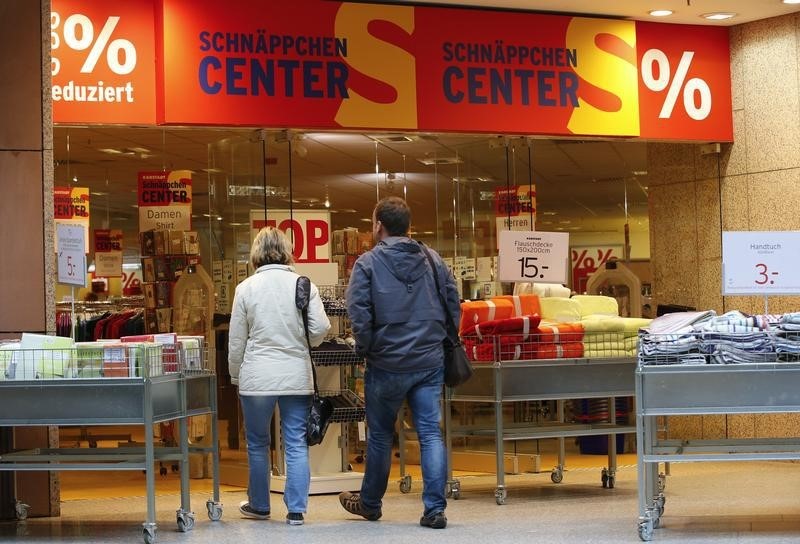By Geoffrey Smith
Investing.com -- Retail sales in Europe's largest economy fell sharply again in February, as high inflation again forced customers to make do with less.
Sales fell 1.3% on the month in price-adjusted terms, their third straight monthly decline, statistics agency Destatis said on Friday. That left them 7.1% below their levels of a year ago. Sales volumes were also 1.6% below their level of February 2020, on the eve of the outbreak of the COVID-19 pandemic in Europe.
Food sales edged up 0.2% but were still down 7.6% on the year, a reflection of a 22% rise in grocery prices in the last 12 months. Non-food sales fell by 0.3% and were down 6.8% on the year.
"If retail sales were unchanged in March, they would fall by 1.5% quarter-on-quarter, somewhat better than the 2.1% slide in Q4," said Pantheon Macroeconomics analyst Claus Vistesen in a note to clients.
The weakness of consumption throughout the first quarter "keeps a Q1 GDP contraction as the base case," tweeted Oxford Economics' Oliver Rakau.
The numbers underline the dilemma facing the European Central Bank, unable to offer much support to a faltering economy as it grapples with stubbornly high inflation. While the headline rate of inflation (according to EU methodology) fell sharply to 7.8% from 9.3% in March in Germany, core inflation continued to accelerate, with services prices up 4.8% on the year, according to preliminary data published on Thursday.
That trend was echoed on Friday, with France also showing a sizeable, but still smaller-than-expected, drop in headline inflation to 6.6% from 7.3% in February. By contrast, prices slowed by more than expected in the Netherlands and in Austria. Eurostat will publish a preliminary estimate for the single currency area at 05:00 ET (09:00 GMT).
